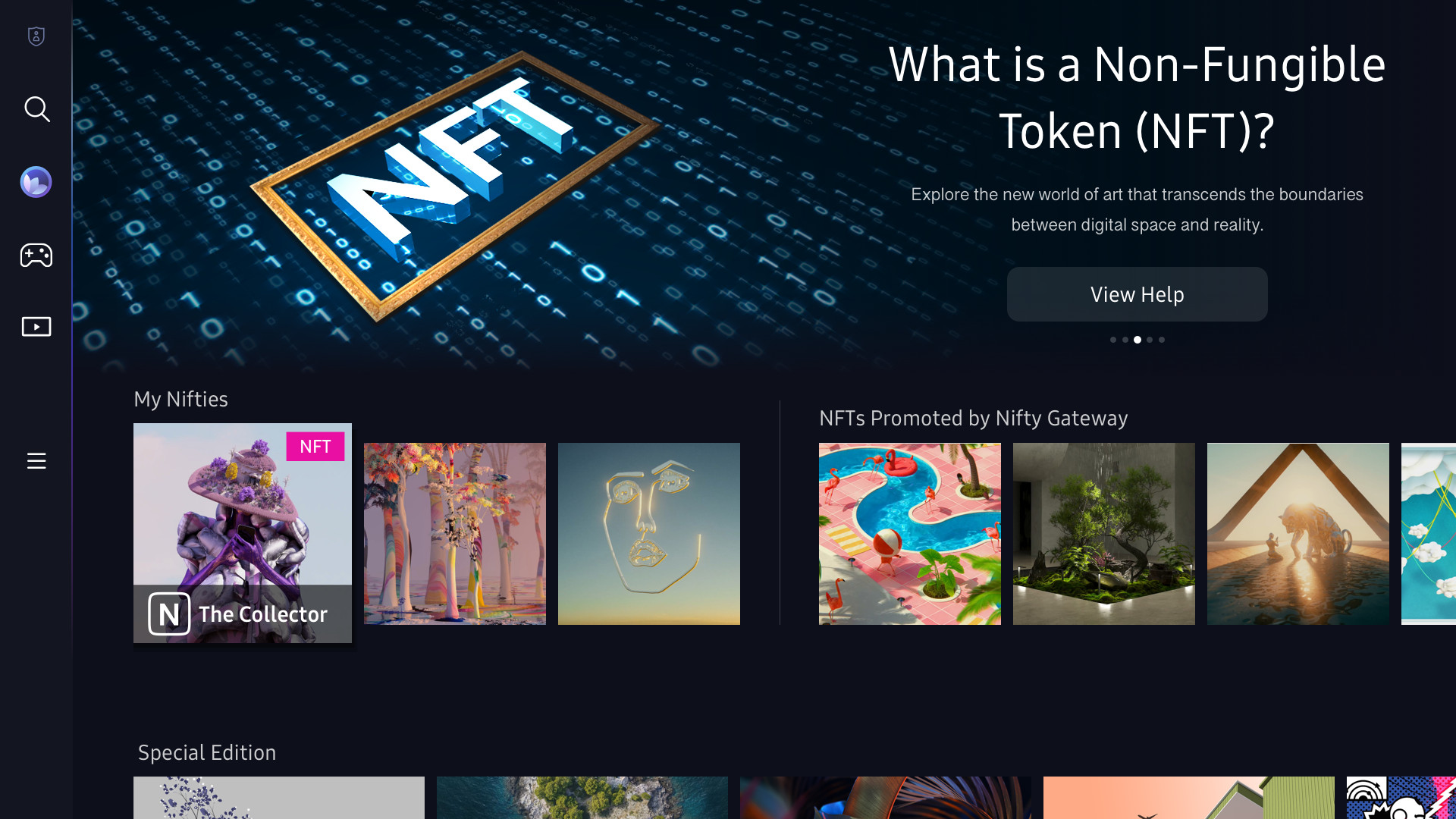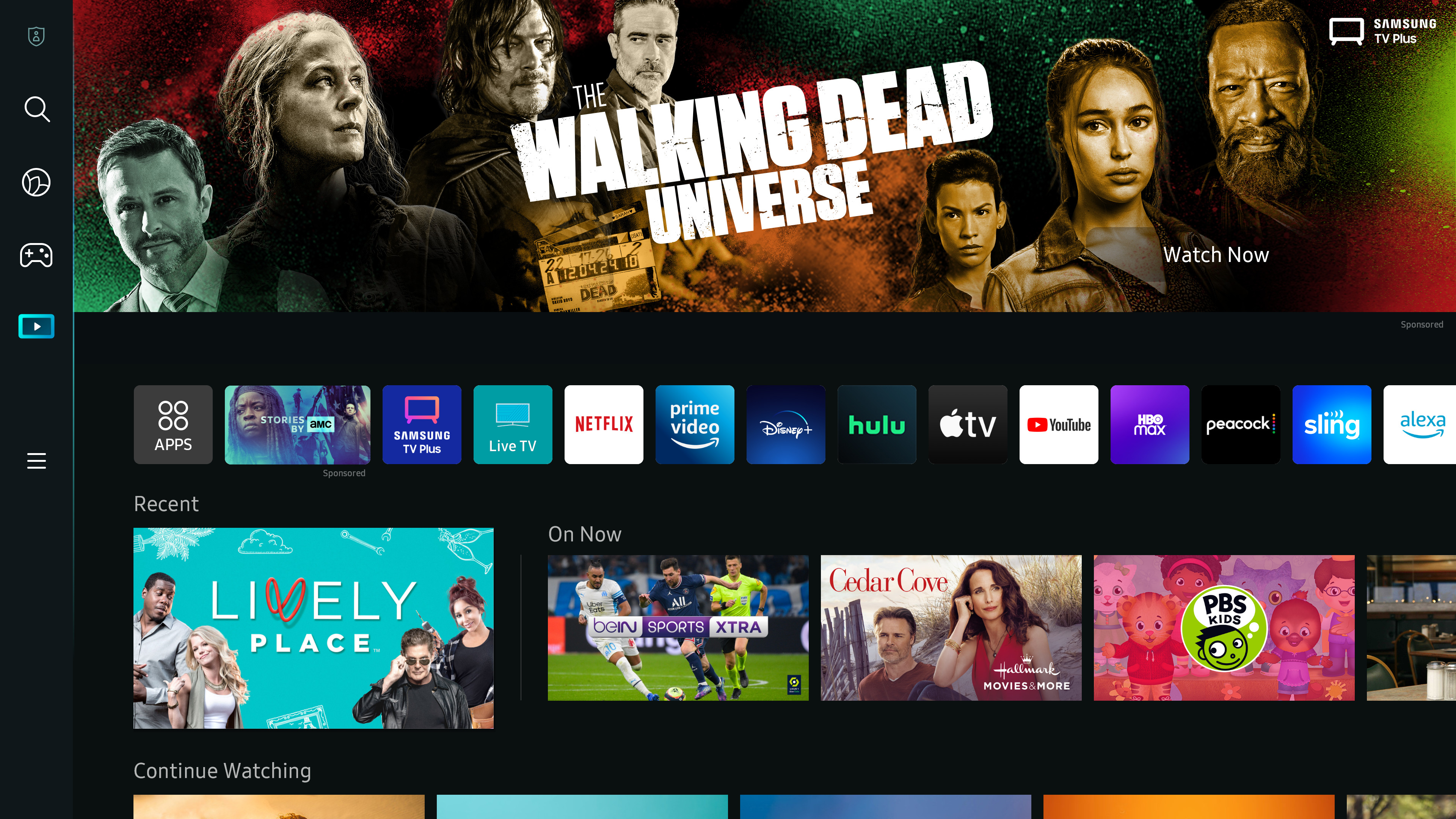Samsung's new QLED TVs have an NFT marketplace - here's why that's a bad idea

Sign up for breaking news, reviews, opinion, top tech deals, and more.
You are now subscribed
Your newsletter sign-up was successful
When Samsung announced back at CES 2022 that its new 2022 QLED TVs would include an NFT marketplace, more than a few eyebrows were raised. For some, it represented a major shift in how NFTs are purchased and consumed… for others, well, it marked another venture down a lucrative rabbit hole that could set a bad precedent for the industry.
Whatever your current outlook on Samsung’s NFT project is, the company has announced that it’s doubling down on the venture with a new partnership with Nifty Gateway.
Nifty Gateway, in case you’re not in the know about NFTs, is a digital art online auction platform - basically, the place where people go to buy and sell NFTs. Once you obtain one from Nifty Gateway, you can then display it right on your TV.
For NFT lovers, having the ability to buy, trade, sell and display their wares right on their Samsung TV is going to be a groundbreaking opportunity - but as with NFTs themselves, there could be some risk in Samsung’s new investment.
Are non-fungible tokens the future?
Like it or not, NFTs are everywhere. They’ve overtaken cryptocurrency as the new tech buzzword and have even been made into a song by Saturday Night Live.
But, as far as NFT’s longevity is concerned, the jury is still out.
By installing an NFT platform directly into its TVs it’s lending credibility to and will likely enable a more mainstream adoption of the technology.
Part of the reason that NFTs haven't made their way onto the computers of more people is their volatility. They seem to pop up overnight, reach critical mass, and then plummet in price, not unlike some online scams.
Sign up for breaking news, reviews, opinion, top tech deals, and more.
There's a number of examples of this, but Jake and Logan Paul's harrowing experience wherein the pair lost significant cash on NFTs in 2021 or rug-pull schemes where NFT makers promise an experiential component and then run off with the profits before delivering both come to mind.
What Samsung is doing here, however, is certainly strengthening the case for an NFT future - by installing an NFT platform directly into its TVs, it’s lending credibility to and will likely enable more mainstream adoption of the technology.
In that way, Samsung’s partnership with Nifty Gateways is actually pretty exciting. But does it set a bad precedent? Is there any downside to Samsung’s newfound enthusiasm for NFTs? Not yet, really. But there might be some time down the road.
The hidden problem of hooking your TV into the blockchain
When it comes to home entertainment devices, TVs are pretty much top-dog. They’ve been refined over the years to be sharper, faster, brighter and more colorful. Recently, TV makers have made them better at handling 4K/120Hz inputs and new HDR formats, too.
A lot of research and development has been done to get them to this point.
Since the advent of smart platforms, software development has always been part of a TV’s development road map - but bringing NFT platforms on board might mean sacrificing some of the time spent implementing and improving other technologies.
There’s clearly money in NFTs - a lot of money, it seems - but we’re worried that the allure of profit could eat into the development of better features, starting a domino effect with other manufacturers looking to find new ways to maximize profit from TVs after the point of sale.

Historically, smart platforms aren't that secure
In the past, scrambling to make additional profit from TVs led TV makers to do some pretty shady things - Vizio previously monitoring the viewing data of 11 million TVs without consent comes to mind.
There’s an inherent risk in adding a financial service to a smart TV platform - not to mention security and privacy concerns.
In the time since, we’ve seen data breaches, voice data collection and straight-up hacks of some smart TV platforms like Android TV. And while no one wants their personal data stolen - having a stranger login to your Netflix account is bad enough - having your financial investments taken from you is a whole different story.
There’s an inherent risk in adding a financial service to a smart TV platform - not to mention security and privacy concerns.
For many, we imagine, those may outweigh the benefits.

Nick Pino is Managing Editor, TV and AV for TechRadar's sister site, Tom's Guide. Previously, he was the Senior Editor of Home Entertainment at TechRadar, covering TVs, headphones, speakers, video games, VR and streaming devices. He's also written for GamesRadar+, Official Xbox Magazine, PC Gamer and other outlets over the last decade, and he has a degree in computer science he's not using if anyone wants it.